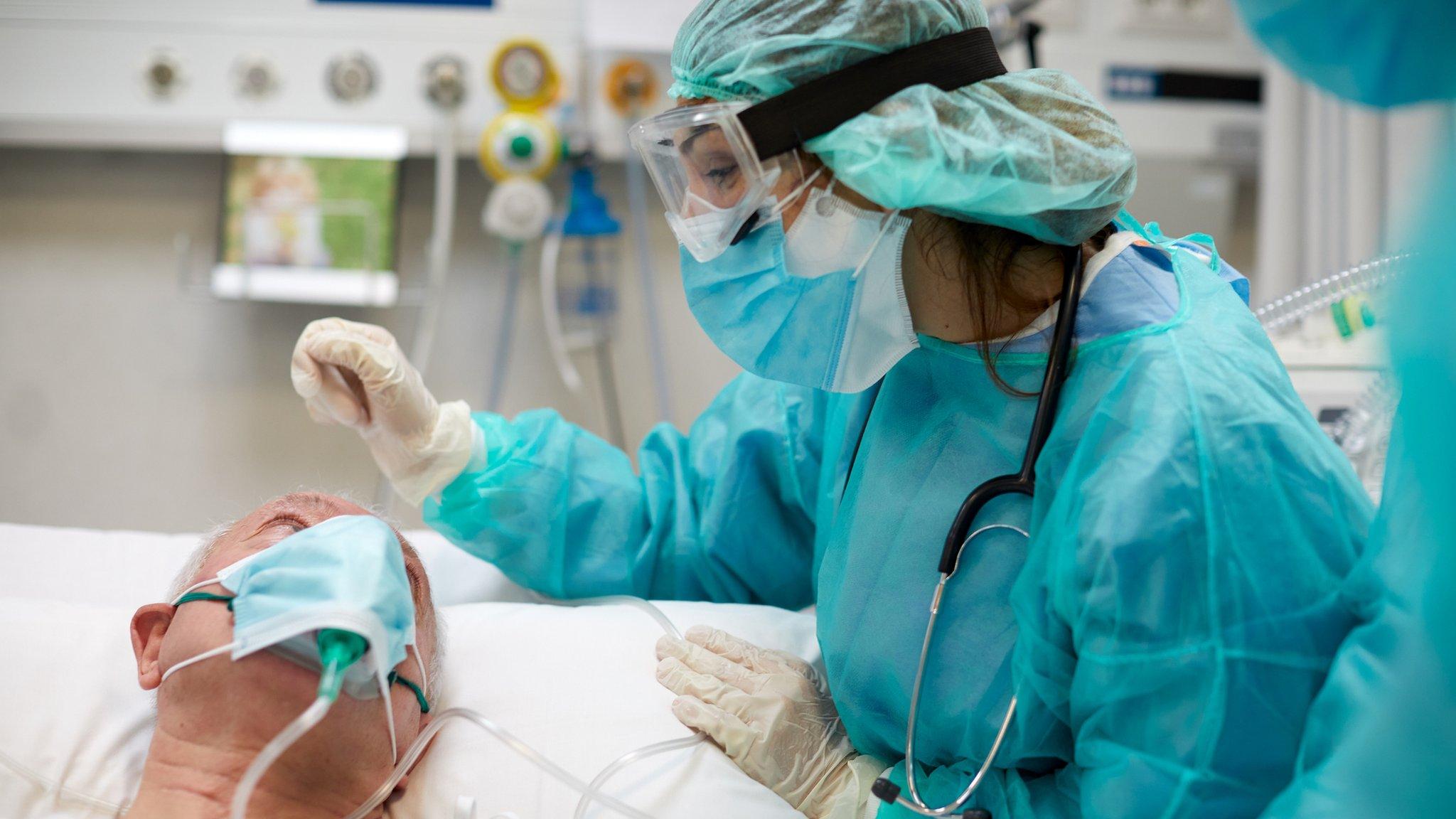Covid: Many NHS staff not routinely tested amid second wave
- Published
Therasa O'Hanlon said she thought she was sending her mother "to a safe place"
Frontline NHS staff in some Welsh hospitals were not regularly tested for Covid-19 until near the end of the second wave, BBC research has found.
Routine testing was announced in December, but it was not introduced in some hospitals until as late as March.
The British Medical Association (BMA) said it "seemed to take an inordinate amount of time" to introduce testing.
The Welsh government said the NHS in Wales had followed "UK infection prevention and control guidance".
To date, Public Health Wales has recorded 8,075 cases of Covid probably or definitely caught in hospitals.
More than half of those infections happened between the beginning of October 2020 and the end of February 2021.
Now information obtained by the BBC's Wales Live programme shows while some frontline workers had routine lateral flow tests from December, the policy was not rolled out to many hospitals until mid-February.
Miranda Evans, who lost two relatives after they contracted Covid in hospital, called for answers, saying hospitals should have been "safe".
Her aunt Ann Smith, 75, and grandmother Pearl Higgins, 92, died within a fortnight of each other last winter.
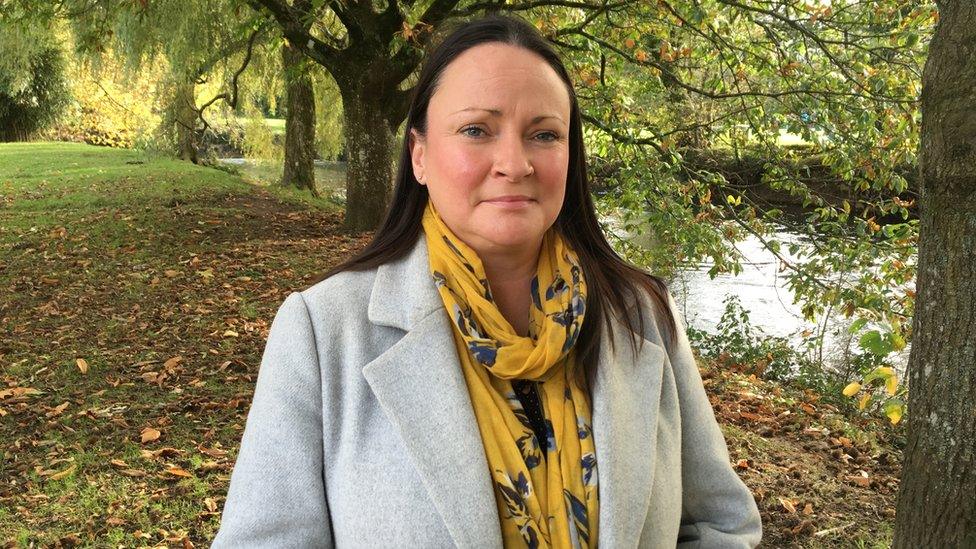
Miranda believes both of her family members contracted Covid at the hospital, something she finds hard to accept
"Their funerals were a day apart," she said. "The whole situation was very surreal, like a nightmare, it didn't feel like normality".
Her grandmother was admitted to the Princess of Wales Hospital in Bridgend with a stroke in September, while her aunt attended a few weeks later with a water infection.
"Hospitals should be a safe place, you're going in to be cared for, to be treated, to be cured. However that was not the case for my relatives."
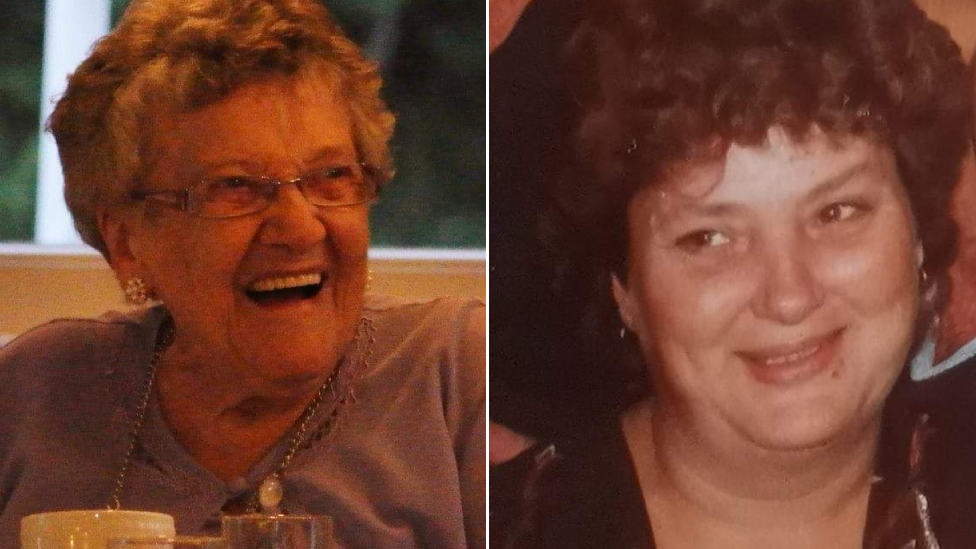
Pearl Higgins (left) and Ann Smith were both admitted to hospital for reasons unrelated to Covid
Shortcomings with testing, ventilation, personal protective equipment, and difficulties segregating patients have all been blamed as factors that may have contributed to the spread of Covid in hospitals.
In July, it was revealed that a quarter of Covid deaths in Wales were from hospital-acquired infections.
Campaign group Covid-19 Bereaved Families For Justice Cymru, which has long been calling for a Wales Covid public inquiry, said hospital-acquired coronavirus was the biggest single issue raised by its members.
Ms Evans has called for answers over why her grandmother was moved around different wards, and about the level of staff testing that was taking place last winter.
She wants their deaths to be looked into, but said she has had no communication from the health board.
Cwm Taf Morgannwg health board said it could not comment on individual cases but was keen to engage with and support the family "to help them get the answers they need".
'I thought I was sending her to a safe place'
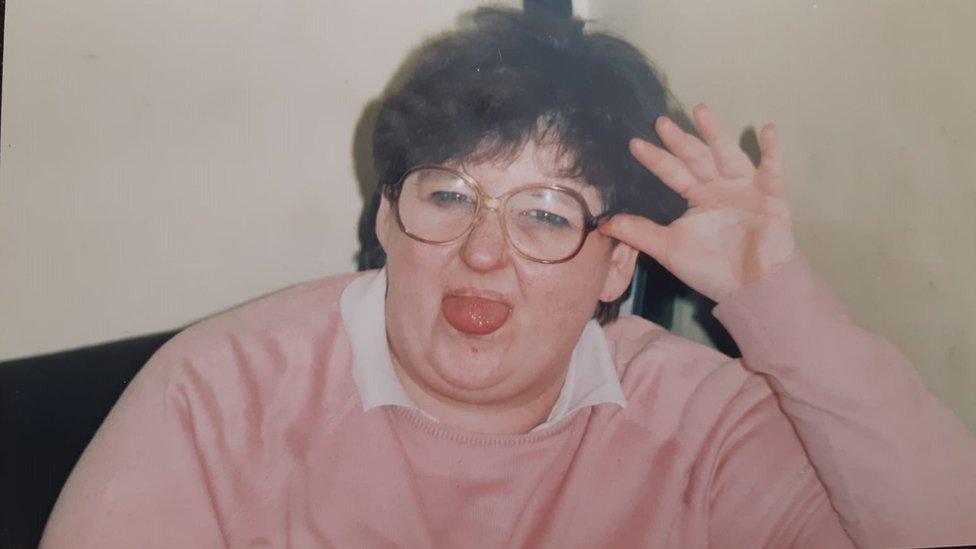
Ann's daughter Therasa recomended she visit hospital after her wound appeared to become infected
In January, Ann O'Hanlon visited hospital after spilling boiling water on herself while making a cup of coffee.
At the University Hospital of Wales in Cardiff she was kept in for physio when it was discovered that she had broken a bone in her pelvis during the accident.
"I thought I was sending her to a safe place," said her daughter Therasa O'Hanlon.
Ann tested negative for Covid on admission to UHW but around a fortnight later contracted the virus. She died days later at the age of 71.
Ms O'Hanlon said she felt "angry and annoyed," adding: "I just want answers. You send people to be safe and to be looked after and to me she wasn't looked after."
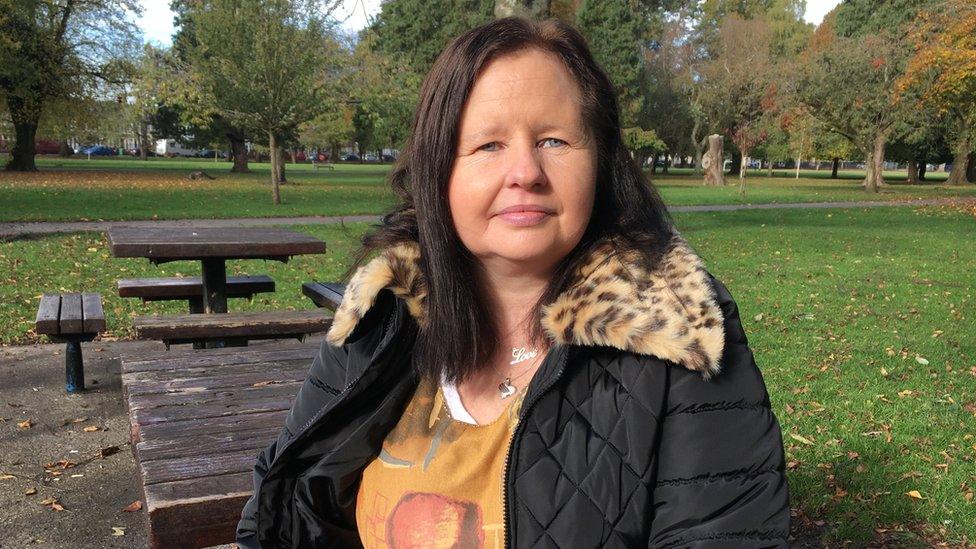
Therasa wants a Wales-based public enquiry to investigate hospital-acquired Covid infections
An investigation by Cardiff and Vale health board found the likely transmission of the virus was from a "confused and wandering patient".
However, Ms O'Hanlon believes deaths caused by hospital-acquired Covid are a reason for a Wales-based public inquiry.
When did my health board introduce routine staff testing?
In December, then health minister Vaughan Gething said routine testing of "frontline health workers" would begin to be introduced from the 14th of that month.
But not all health boards implemented this step immediately.
Aneurin Bevan added asymptomatic testing of staff working with "extremely vulnerable patients" began in October 2020.
However, it did not start regularly testing all frontline staff at the Royal Gwent Hospital in Newport and Ysbyty Ystrad Fawr in Ystrad Mynach until mid-February, and those at the Grange Hospital in Cwmbran and Nevill Hall in Abergavenny until the beginning of March.
Swansea Bay said testing started "in selected areas" on 20 December, before a "wider rollout" on 11 January.
Hywel Dda did not introduce regular testing until 25 February.
Betsi Cadwaladr started testing all "roving, high-risk and medium-risk areas" from 15 February.
It had previously started testing a "small cohort of staff" at Wrexham Maelor hospital on 21 December.
Cwm Taf Morgannwg began introducing tests to all staff on 14 December.
Cardiff and Vale did not provide dates.
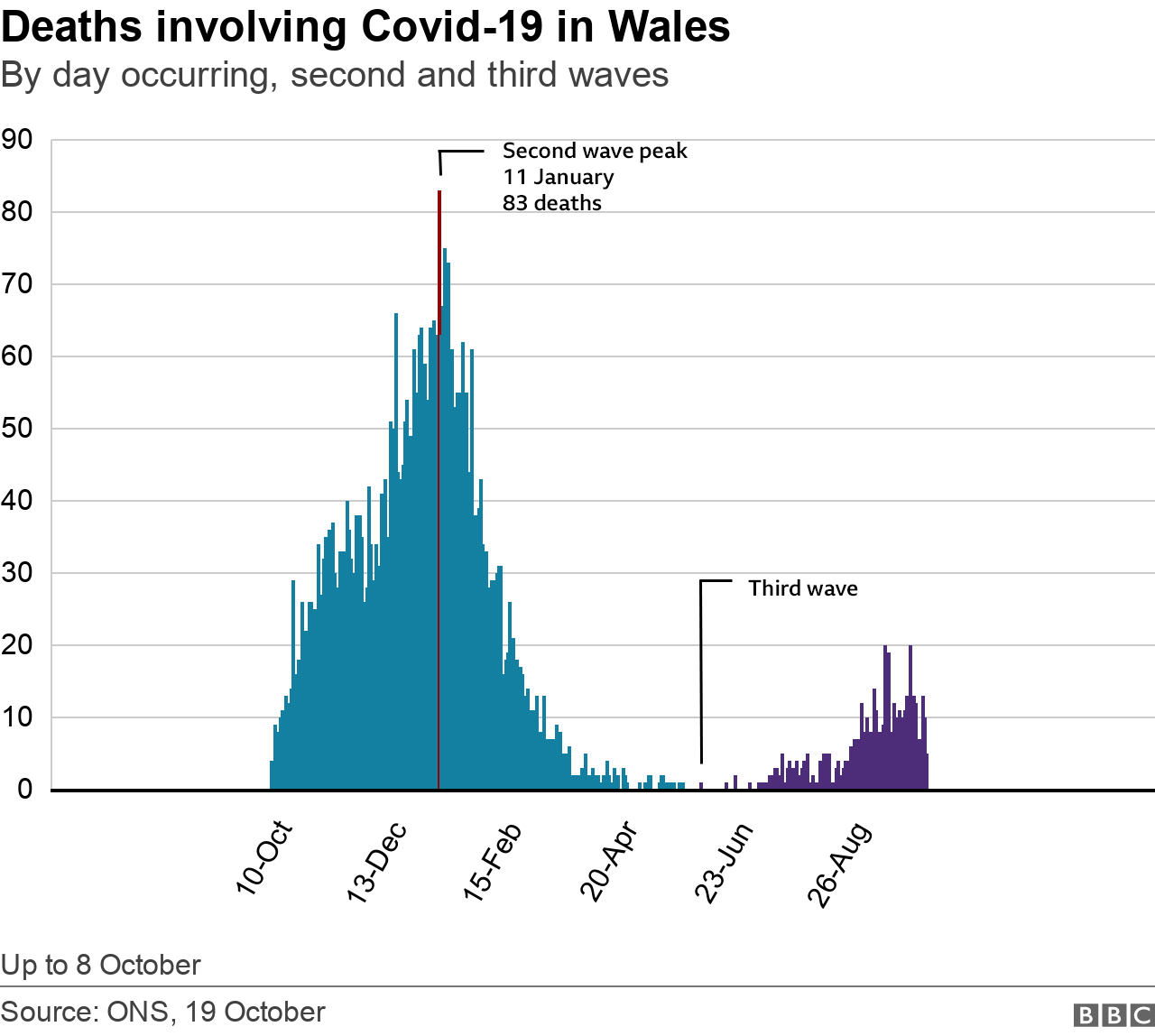
Dr Phil Banfield, chairman of the BMA's consultants committee, said routine testing with lateral flow devices "seemed to take an inordinate amount of time" to introduce.
"We hit Christmas and the expected second wave and still the routine testing wasn't readily available in all hospitals in all health boards," he said.
But he thinks Covid spread in hospitals due to it not always being possible to "space patients out in the way that was needed and was recognised as being necessary".
"There were frustrations throughout hospitals in Wales because we knew this was going to happen and knew that if you invested in the estate and temporary expansion of physical space that it would help us in the longer run.
"Our difficulty was we went into the pandemic with too few beds and not enough staff in the first place."
Welsh Conservative health spokesman Russell George said the lack of routine testing in the second wave was "shocking and strange", "and goes a long way to explaining how a quarter of Covid deaths in Wales were due to infections acquired in hospitals".
Plaid Cymru's health spokesman Rhun ap Iorwerth said: "Tragically, we are now hearing of the consequences of our NHS staff not being routinely tested. We need reassurance that all incidents of patient harm will be fully investigated."
Both parties reiterated calls for a Wales-only Covid inquiry.
The Welsh government said: "Coronavirus is a highly-transmissible virus, especially in closed settings such as hospitals.
"Throughout the pandemic, the NHS in Wales has followed the UK infection prevention and control guidance which has been regularly updated.
"Guidance has also been issued to the NHS and regularly updated about social distancing, bed spacing, staff and patient testing and mask wearing.
"But, despite all these measures to protect staff and patients in hospitals, unfortunately people have caught coronavirus while in hospital and, very sadly, some have died."
There will be more on this story on Wales Live, BBC One Wales, at 22:30 GMT on Wednesday
- Published19 October 2021
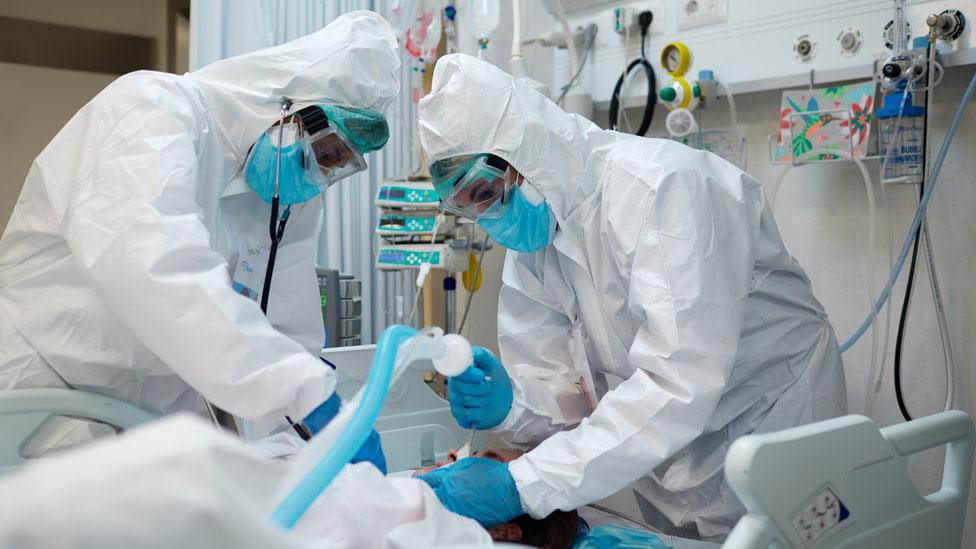
- Published23 December 2020
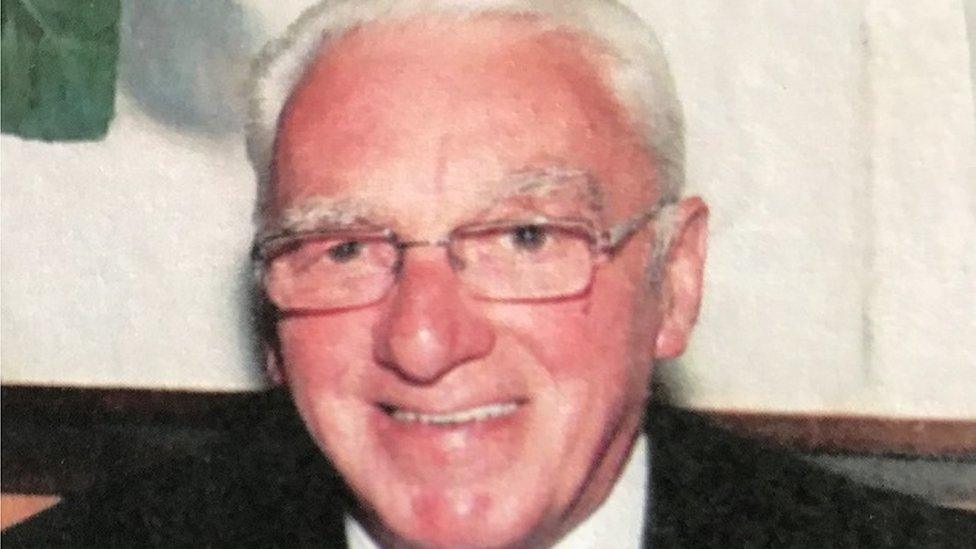
- Published27 August 2021
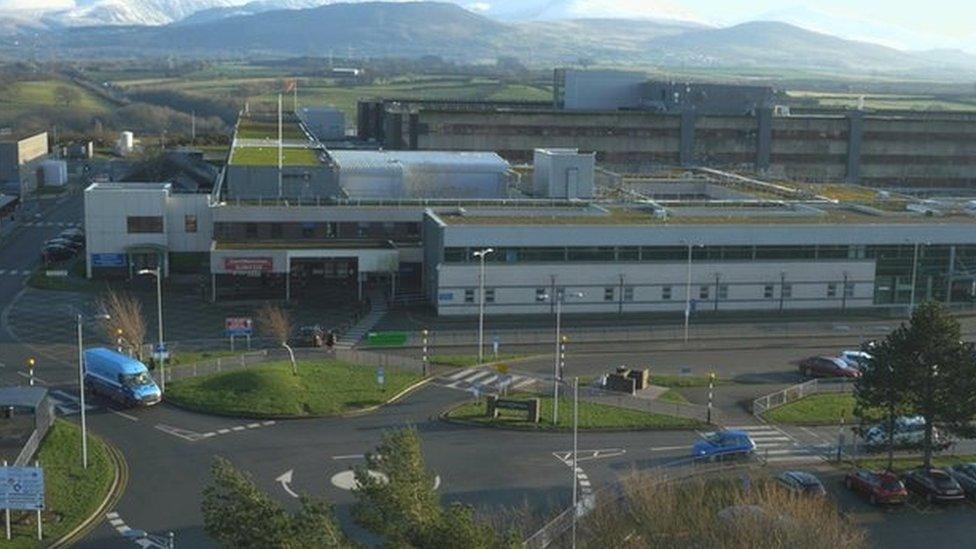
- Published24 October 2021
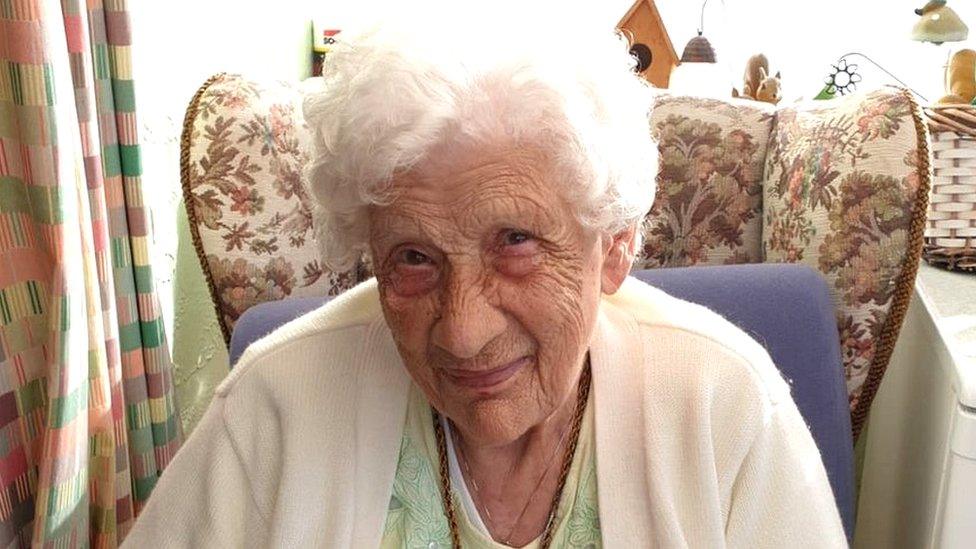
- Published28 May 2024

- Published13 August 2021
